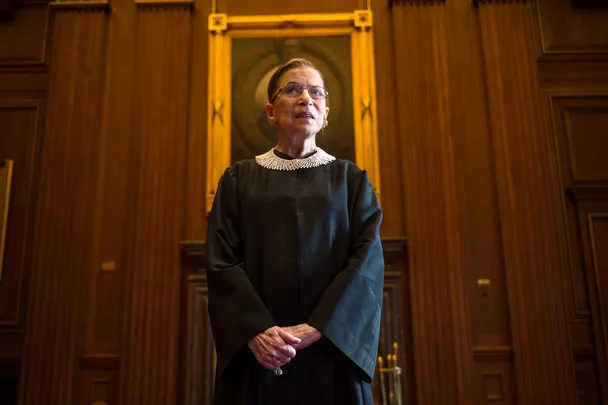“I have to somehow surmount whatever is going on in my body and concentrate on the court’s work.” That was Ruth Bader Ginsburg in 2019, speaking about being treated for pancreatic cancer. And even on her deathbed, Ginsburg was focused on the court’s work: Per NPR, she dictated a message to her granddaughter, Clara Spera, in the days before her death: “My most fervent wish is that I will not be replaced until a new president is installed.”
Ginsburg knew the consequences of her death. Indeed, she’s joked about the speculation, saying in 2019: “There was a senator—I think it was after the pancreatic cancer—who announced with great glee that I was going to be dead within six months. That senator—whose name I’ve forgotten—is now himself dead. And I am very much alive.”
It’s no secret that Ginsburg tried her hardest to make sure that President Trump would not be able to replace her on the Supreme Court. Diligent about her health, Ginsburg had described her personal trainer as the most important person in her life (she lost her husband in 2010). Indeed, that personal trainer, Bryant Johnson, published a book about the one-hour workout the two had been doing for almost two decades, titled The RBG Workout: How She Stays Strong and You Can Too. (It’s a pretty intense workout; two different young, self-described fit reporters who tried it noted that it was challenging.)
Ginsburg knew that if Trump was able to replace her on the Supreme Court with a conservative-leaning justice—the third Supreme Court justice he would appoint—the court would lean more conservative than ever, with six of the justices generally leaning conservative, three leaning liberal. Because Supreme Court justices often stay on the bench for decades (Ginsburg herself was there for 27 years), remaining there until their death or, more rarely, their retirement, the appointment of a Supreme Court justice can in many ways be more impactful than a single presidency.
Just last week, Trump released an updated list of Supreme Court justices. The question now becomes: Will the president try to push a conservative nominee through before the election—and, if he loses the election to Joe Biden, before he leaves office in January? And if so, what kind of political showdown could follow?
This article originally appeared on marie claire U.S.










